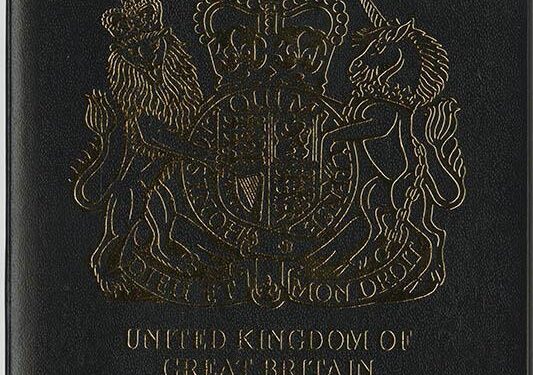The United Kingdom has agreed to allow Spain to carry out passport checks on travelers entering Gibraltar as part of a new deal with the European Union. This arrangement marks a significant shift in the management of the disputed territory’s border and aims to streamline cross-border movement while addressing longstanding sovereignty sensitivities. The Financial Times reports that the agreement, which forms part of post-Brexit negotiations, seeks to balance the interests of all parties involved, signaling a pragmatic approach to one of the region’s most contentious issues.
UK Agrees to Spain’s Role in Gibraltar Passport Checks Amid Brexit Tensions
In a significant breakthrough amid ongoing Brexit negotiations, the UK government has consented to Spain conducting passport checks on individuals entering Gibraltar. This arrangement marks a pivotal step towards easing border tensions that have long strained relations between the UK and Spain over the small but strategically important territory. The agreement, brokered with the European Union, aims to facilitate smoother border control processes while respecting Gibraltar’s sovereignty under British jurisdiction. This pragmatic approach seeks to balance security with seamless cross-border movement for residents and visitors alike.
Key elements of the deal include:
- Spanish officials will manage passport scans at points of entry to Gibraltar.
- British authorities retain control over customs and immigration policies.
- Data sharing protocols established to uphold privacy and security standards.
| Aspect | Details |
|---|---|
| Implementation Date | Q3 2024 |
| Gibraltar’s Role | Coordinating with UK & Spanish officials |
| Expected Impact | Reduction in border wait times |
Implications for Gibraltar Residents and Border Security in the New Deal
The agreement granting Spain authority to inspect Gibraltar passports marks a significant shift in the governance of the region’s border controls. For residents of Gibraltar, this means an increased presence of Spanish checks on their movement, potentially affecting daily commutes, cross-border employment, and tourism. While the UK assures that these checks will be conducted under strict bilateral agreements to safeguard residents’ rights, the palpable change introduces a layer of uncertainty for locals who have long operated under a unique identity distinct from mainland Spain.
Key effects on Gibraltar residents and border operations include:
- Possible delays and additional scrutiny during crossings, impacting timesensitive travel
- Heightened cooperation between UK and Spanish authorities to streamline passport verification
- Introduction of new documentation requirements for certain categories of travelers
- Enhanced security protocols aimed at curtailing illegal activities without disrupting commerce
| Aspect | Before the Deal | After the Deal |
|---|---|---|
| Passport Checks | Limited, mainly UK controlled | Spanish authorities conduct checks |
| Border Delays | Minimal | Potential for increased processing times |
| Resident Mobility | Unrestricted within agreement frameworks | Subject to enhanced verification measures |
On the border security front, the deal intensifies collaborative customs and immigration efforts, introducing sharper vigilance without compromising the flow of goods and people. The arrangement aims to strike a delicate balance between sovereignty concerns and practical border management, leveraging technology and joint patrols to minimize friction. Security agencies on both sides will need to adapt rapidly, focusing on intelligence sharing and operational coordination to enforce the new protocol efficiently.
Recommendations for Stakeholders to Navigate the Changing Passport Control Landscape
As passport control procedures evolve following the UK’s agreement allowing Spain to check Gibraltar passports, stakeholders must adopt adaptive strategies to ensure seamless border management. Governments and border authorities should invest in joint training initiatives to harmonize inspection methods and foster mutual understanding of document standards. Additionally, implementing real-time data-sharing platforms will be critical to expedite identification checks and reduce queues, ultimately enhancing traveler experience while maintaining security protocols.
Travel businesses and airlines are encouraged to update their logistics frameworks to accommodate potential delays and changes in processing times. Enhancing communication channels with passengers regarding new document requirements and control procedures will mitigate confusion. Meanwhile, policy makers should continuously monitor operational outcomes and feedback, adjusting bilateral agreements where necessary to balance sovereignty concerns with pragmatic border management.
| Stakeholder | Recommended Action | Expected Outcome |
|---|---|---|
| Border Authorities | Joint training; shared data systems | Faster, uniform checks |
| Travel Industry | Passenger communication updates | Reduced confusion and delays |
| Policy Makers | Ongoing operational review | Responsive, adaptive policies |
In Retrospect
The agreement marks a significant development in post-Brexit relations between the UK, Spain, and the EU, aiming to ease border checks and reduce tensions over Gibraltar’s status. As the new arrangements take effect, stakeholders on all sides will be watching closely to see how this cooperation influences future negotiations and the broader dynamics of the region.
















